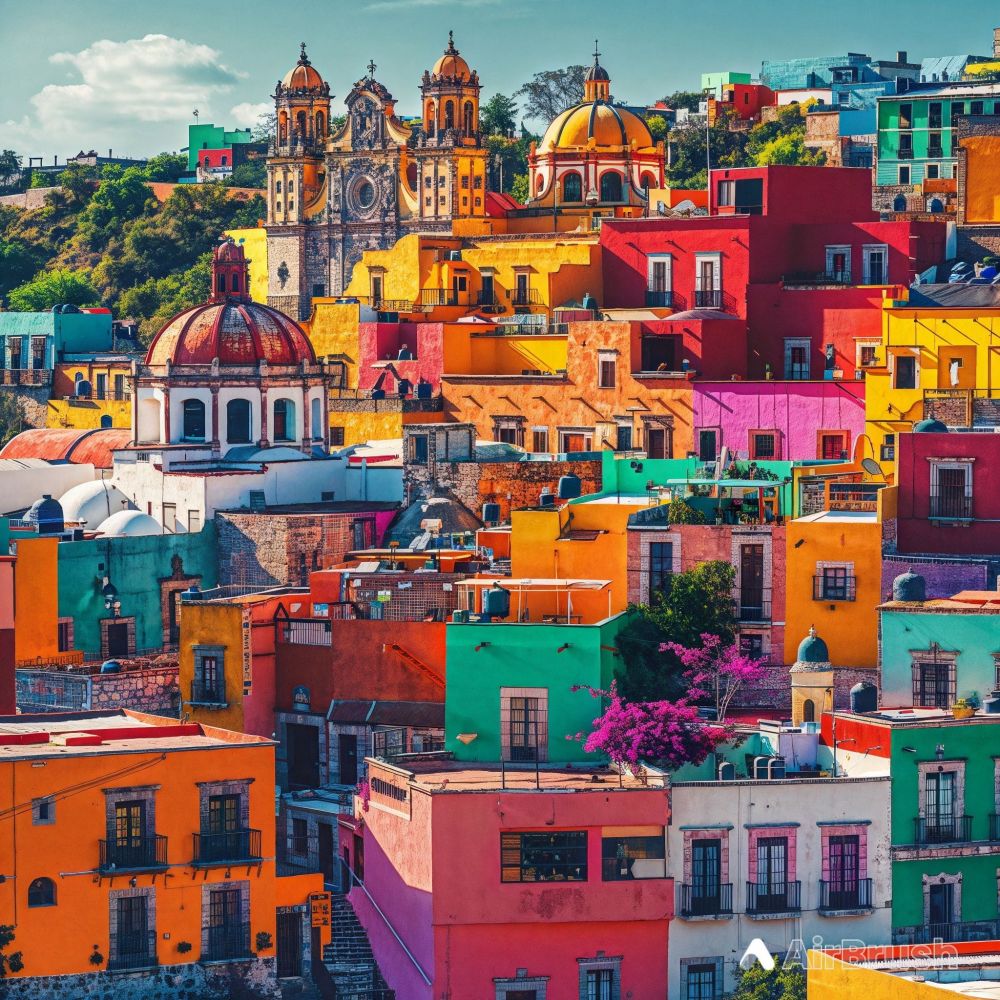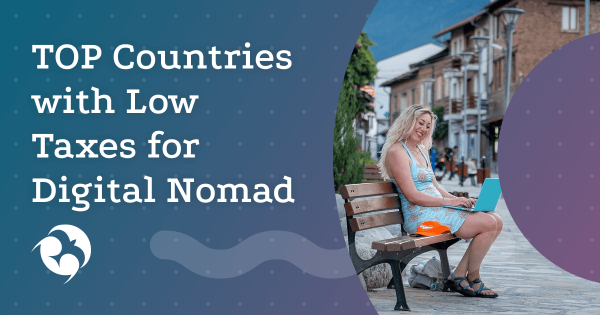Specialists, freelancers, and entrepreneurs are offered a convenient option for long-term stay in a Latin American country. For this purpose, a temporary residence visa with the alternative name Digital Nomad is suitable. Its introduction was driven by the need to attract financially capable foreigners to invest in diversified industries with private capital and to develop the IT sector.
Expats with earnings of $4,290 or deposits of $54,500 are granted a four-year visa. It provides social benefits and the possibility to apply for permanent residency in the future. To enter, an electronic tourist visa is required. Upon arrival in the country, it is exchanged for a Residente Temporal card at the National Immigration Institute.
Specifics of Mexico’s Freelance Visa
Immigration to the constitutional republic of North America seemed unrealistic not long ago. But over the past three years, much has changed in the country and the world. Compatriots are striving to move to the land of tequila and sun and work remotely. The location has become a popular migration route for nomadic people. Annually, it welcomes 1.1 million expats, 700,000 of whom are Americans. As of early 2024, Mexico ranked 14th in the World Digital Nomad Index with a score of 3.15.

- We will answer all your questions
- We will help you choose the best option
- We will guide you through every step or do everything for you
Mexico is chosen for its loyal political and tax laws, affordable housing rent, consumer basket, and proximity to the U.S.
The authorities are interested in developing the digital technology sector, intellectual exchange, and create favorable working conditions. In Merida, Mexico City, Tulum, and other major cities, infrastructure with high-speed internet has been established. Numerous digital nomad communities help integrate into the business environment and establish working connections.
Temporary residence visas are sought by software developers, network engineers, QA testers, cybersecurity professionals, and artificial intelligence specialists. The DTV visa is also open to aspiring startups, entrepreneurs, freelancers, and individuals in free professions.
The requirements for third-country nationals to obtain the visa are regulated.
Specialists must:
- have high qualifications and experience;
- be employed by a foreign company;
- prove income from work or passive sources;
- have no legal issues.
Entrepreneurs, freelancers, and the self-employed can enter the country by invitation accompanied by spouses, family members, and parents.
What Taxes Do Freelancers Pay
Country residents, regardless of citizenship, pay income tax on worldwide income at a progressive rate of up to 30%.
Entrepreneurs and self-employed individuals earning 50% or more abroad are exempt from taxes and social contributions.
Tax table for digital nomads, freelancers, self-employed and sole proprietors
| Tax name | The amount of tax | Note |
| Income tax (residents) | Progressive scale: 1.92–35% | Applies to the entire global income. Bids: up to 7,735 MXN – 1.92%, over 3,000,000 MXN – 35% |
| Income tax (non-residents) | 30% | Is charged only on income received from Mexican sources |
| RESICO mode (self-employed) | 1–2,5% | Preferential treatment for the self-employed with an annual income of up to 3.5 million MXN. Does not require VAT payment |
| VAT | 16% (standard), 0-8% (preferential) | Required for turnover over 300,000 MXN/year. For exports and international services – 0% |
| Social contributions | 6,5% of revenue | Include health insurance and pension contributions. Required for residents |
| Tax on dividends | 10% | It applies to the distribution of companies’ profits. For sole proprietors and legal entities |
How Much Does the Visa Cost
Expats are required to pay a consular fee of $150-350 depending on the visa term, and an interview fee of $44. The cost of a residency card in Mexico is $15-30. The price of visa extension is $100.
Required Documents and Conditions
The process of obtaining a temporary residence visa begins with submitting an application on the embassy’s website and gathering documents for the interview.
The list of required documents includes:
- a valid passport with at least six months of validity;
- an application in English/Spanish, printed on both sides;
- color photos on a white background;
- an original entry visa;
- biometric data;
- electronic bank statements for the last 3 months;
- scans of payments.
For family relocation, translated and certified birth and marriage certificates are required, along with proof of sufficient funds to support dependents – $860 for each. The application review period is 15 days.
Within a month of arrival, foreigners exchange visas for Mexican cards based on pre-collected documents. These include residency applications, FMM migration cards from the airport, and accompanying letters from consulates. One month before the expiration of the Residente Temporal, it can be renewed for an additional fee.
Recent Changes in Mexico’s Visa Policy
In 2024, the number of requests related to digital nomad visas increased by 1.5 times, including for visas to Mexico.
Since mid-2022, the country has been phasing out the paper FMM form. The process is gradual. For those who did not receive it upon arrival, stamps are placed in passports when exiting the country. Temporary residents are required to register with the airport immigration service.
Frequently Asked Questions
According to current data for 2025, it is necessary to confirm an income of at least $4,290 per month or a minimum bank account balance for each of the last 12 months in the amount of $71,500 (at the rate of $1 = 20 pesos). This amount is equivalent to the income for 300 days of the minimum wage set for Mexico City.
The Mexican authorities accept various documents to confirm the financial viability of the applicant:
- Bank statements (showing the movement of funds over the last 3-6 months);
- Employment contracts with foreign companies;
- Documents confirming the availability of bank deposits, shares, and dividends;
- Certificates of ownership of real estate and attached lease agreements;
- Tax returns for the last 3-6 months.
Yes, having health insurance is a requirement. The insurance policy must be valid for the entire period of stay, cover basic medical expenses (including emergency care), and be adapted specifically for remote workers and digital nomads living abroad.
The document must be issued no later than 3 months before the application is submitted.
The passport must be valid for at least 6 months after the expected expiration of the visa/ residence permit, have a sufficient number of free pages for visa marks, and be in good physical condition.
When applying for a visa / residence permit together with family members, it is necessary to provide proof of kinship with dependents (marriage certificates, birth certificates of children), proof of a higher income (usually it increases by 75% when moving with a spouse and by 25% for each child), a complete package of documents for each family member (including passports, photos, etc.).
The procedure for obtaining a residence permit in Mexico includes the following steps:
- Preparation and submission of documents to the Embassy of Mexico in the country of residence;
- In case of a positive decision, the applicant receives an immigration visa, pasted into the passport and valid for 6 months.;
- During this period, you must enter Mexico and contact the immigration office for registration.;
- You will need to fill out a form at the immigration office, provide the visa and documents you have received, as well as submit biometric data.
After that, a Mexican temporary resident card is issued for a period of 12 months with the right to further extension.
The standard processing time for an application varies from 2 to 6 weeks, depending on the workload of the consulate and the completeness of the documents provided. In practice, it is recommended to count on 1.5-2 months from the date of submission of documents until prior approval is received.
Initially, the visa is issued for 1 year with the possibility of extension up to 4 years while maintaining the conditions of financial viability.
After receiving the visa stamp in the passport, the applicant must enter Mexico within 6 months. After this period, the permit becomes invalid, and the procedure will have to be started anew. The period of stay starts from the moment of the first border crossing, and not from the date of visa issuance.
Upon arrival in Mexico, foreigners are given 30 calendar days to contact the local office of the National Institute of Migration (INM). During this period, you must:
- Make an appointment through the INM online platform;
- Get biometric registration;
- Sign a declaration of financial responsibility;
- Pay the administrative fee (about $200-350).
The procedure for issuing a resident card takes 7-10 business days after submitting the full package of documents.
Holders of temporary residence permits must comply with the “183 days a year” rule. This is the minimum period of actual stay in the country in order to maintain the resident status. Exceeding the absence limit may lead to the cancellation of the resident’s card and the need to re-apply for a visa.
Digital nomads are exempt from paying taxes on foreign income during the first 183 days of their stay. After exceeding this limit, a resident tax liability automatically arises, requiring:
- Registration with the Internal Revenue Service (SAT) within 30 days;
- Submission of the annual declaration by April 30 next year;
- Quarterly advance payments (for sole proprietors).
When including dependents in the application:
- Spouses/partners (adding 2-3 weeks to the total processing time);
- Minor children (1-2 weeks extra);
- Adult student children (separate registration is required after 4-6 weeks).
All family members must enter Mexico at the same time as the main applicant or within 60 days of his legalization.
The total cost consists of several components:
- State duty. It varies from $40 to $700 depending on the type of visa and the validity period. For example, a temporary residence permit requires a payment of $40 for initial submission and $150-350 upon approval.
- Consular fees. $51 for processing the application at the embassy.
- Insurance. From $20 to $200 monthly, depending on coverage.
- Additional services. The help of immigration lawyers can increase costs by $1,200-$3,000.
For a family of 4, the total first-stage costs often exceed $2,500, including health insurance and rental housing.
In addition to the official fees, it is worth considering:
- Translation of documents. Notarized translation into Spanish ($15-30 per page);
- Apostillation. Legalization of certificates through apostille ($50-100 per document);
- Biometric services. Data collection at the Immigration office ($50);
- Courier services. Transfer of documents between countries ($70-150).
For families with children, additional costs arise when issuing birth certificates and transferring them (an average of $200-300 per child).
When including dependents in the application:
- Spouse/partner (increase in state duty by 75% of the base rate);
- Children (additional payment of 25% for each child);
- Insurance (a family policy is 40-60% more expensive than an individual one).
For example, with the base cost of a visa of $300 for the main applicant, a family of 3 people will pay $300 + $225 (spouse) + $75 (child) = $600.
The payment schedule is strictly regulated:
- Consular fee (when submitting an application);
- State fee for the resident card (within 10 days after visa approval);
- Insurance (the policy must be active at the time of submission of documents).
A delay in payment of more than 5 business days leads to cancellation of the application and the need to start the process anew.
Mexican law provides for:
- 100% refund of the consular fee in case of technical errors of the system;
- 50% refund of the state fee in case of refusal for reasons beyond the control of the applicant;
- 0% refund if false information is provided or documents are overdue.
To minimize risks, it is recommended to take out insurance in case of failure, which covers 70-90% of expenses (cost $ 100-200).
When extending a residence permit after the first year:
- State duty is reduced by 30% (from $300 to $210);
- Insurance – when switching to local tariffs (savings of 20-40%);
- The cost of updating documents is $100-150.
The total cost of an extension is usually 60-70% of the initial cost.
Yes, obtaining Mexican citizenship through a digital nomad visa is possible. The process requires certain conditions to be met and several stages to be completed.
- Obtaining a temporary residence permit (Temporary Resident Visa) is issued for a period of up to 4 years.
- Transition to permanent residence (permanent residence).
- Naturalization and obtaining citizenship. After 5 years of residence in Mexico (including time as a temporary resident).












